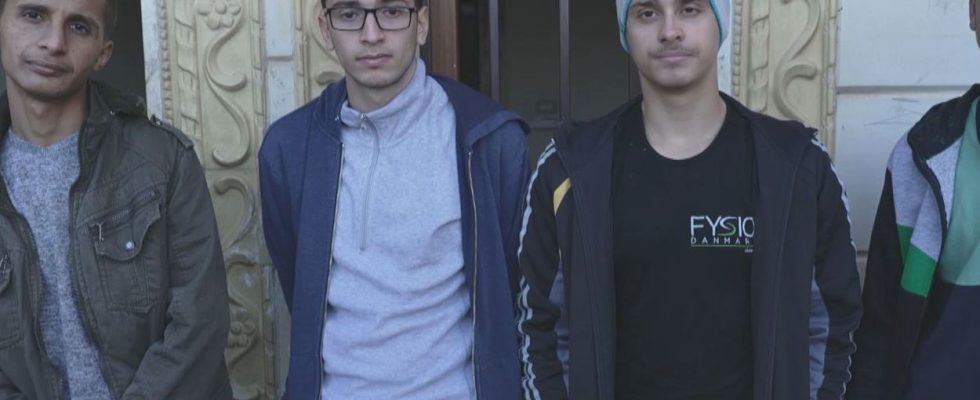It is an exceptional document that “Envoyé Spécial” is preparing to release: an insight into the deradicalization center of Orkesh, in Syrian Kurdistan. A place created a year and a half ago to welcome and take care of the sons of Islamic State jihadists. The youngest are around twelve years old, the oldest are young adults. Here, Syrians, Germans, Tunisians and even British people rub shoulders. Around twenty nationalities, in total. And four French people. Adem, Youssef, Elias and Amza. They are between 18 and 21 years old. All four arrived in Syria with their parents after childhood and were immersed in jihadist propaganda. Today, everyone claims to have come out of it. “Don’t be afraid of me, I’m not a vampire, I don’t drink blood,” implores Youssef, 18 years old.
It took many months of negotiation before the authorities accepted a television crew. “What we wanted was time. Talking to these kids, understanding their story, their journey,” recalls Chris Huby, the director of the documentary. It must be said that some have a heavy past. Among the four French people, there is Adem, son of Fabien Clain, “the voice of the November 13 attacks”. His father and uncle – killed in a drone strike – recorded the message claiming responsibility for the attacks. Both held a major position in the terrorist organization: heads of propaganda.
“My father is a terrorist. Without lying, I’m angry with him, he’s the one who brought me back to Syria,” assures the young man. In front of the camera, he says he dreams of having a girlfriend, an apartment, a family. And to insist: “I am a victim, I did nothing. I’ve never been in combat, I’ve never touched a weapon. »
“You’re going to war, cash”
Since the end of the war, France has advocated a case-by-case return policy for minors. “There is a legal vacuum surrounding these young people,” explains Chris Huby. They were kidnapped by their parents, taken to a war zone but today they are adults. Some fought but not everyone. » The authorities agree that they are victims of their parents’ decisions but fear that they are “time bombs”. In short, let them feign their deradicalization and commit an attack in the more or less near future.
Amza and Youssef appeared in a propaganda video in 2014. They were 11 and 9 years old respectively and strutting around with Kalashnikovs, presented Mohamed Merah as a “hero”. Ten years later, their speech is radically different. “He has spoiled the name of Islam,” insists Amza. But their role was not always limited to propaganda. He, for example, joined the famous brigade of “lion cubs of the caliphate” as a teenager, child soldiers aged 9 to 15. In particular, he learned how to use weapons – Kalashnikov, rocket launcher, machine gun – before being sent into the field. “You’re going to war, cash,” he insists. Did he kill people? “Maybe, but I’d like to say no. »
“Kids are separated from parental influence”
“Here, deradicalization first involves the fact that the kids are separated from parental influence,” specifies Chris Huby. Some are orphans, others still have relatives living in the Al-Hol or Al-Roj camps. The program includes language, math, sports and geography lessons taught by NGO volunteers. But no religion classes. “The other lever is the mix of these kids. Some are very radicalized, others much less. These centers are still experimental, the first dates from 2018, but nothing is done at random. In the rooms, if we put three moderate kids with a more radicalized one, little by little the latter will open up, disengage ideologically. It’s not overnight but I’ve been able to see it. »
Everyone dreams of a future in France, of a repatriation that does not come. Although this center is not a prison strictly speaking, the residents are subject to very strict rules and do not know when they will return. The conditions are more than Spartan. There are no tables for eating, no chairs either. The young people share a bowl placed on the ground. Some were seriously injured during the war and cannot benefit from appropriate care. Another, Youssef, says he has suicidal thoughts. “Our family, they did things, but we don’t have to be like them,” insists Amza.

